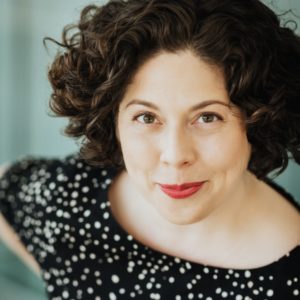The Writing Center is a digital space that supports Seattle School students in their development as writers and is the primary resource for accessing writing resources, such as paper formatting guidelines and citation help for APA and Chicago Turabian Style. (You’ll be using both, whatever degree you do.)
The Writing Center offers free one-on-one consultations for learners enrolled in our graduate degree programs. Writing Center Consultants Phil Doud and Cristin Fenzel are available year-round for 40-min Zoom appointments.
In the following conversation, Cristin and Phil interview each other, sharing their own ways of working and why they value supporting students within every stage of the writing process. As you read their conversation, you might recognize some of your own questions, habits, and challenges, as well as some tips. Cristin and Phil would love to meet you; click here to schedule an appointment.
Which practices help you get and stay motivated to write?
Phil: Depending on what I’m writing, it can be helpful for me to get my ideas out in a non-paper-format way first. I use a lot of notecards and dry-erase boards. The windows of my house are not uncommonly covered with dry-erase marker.
Cristin: I love it! Like that movie …
Phil: Yeah, sometimes I do feel a little Beautiful Mind – like my neighbors see me frantically scribbling formulas on my window. Having ADHD, consistency is not my strong suit. When I want to calm myself down to settle into reading, that takes an energy shift for me. I try to do a lot to block out stimulation. So it’s often turning on very faint, wordless music, or a white noise machine. It’s closing the door, or sometimes clearing my desktop.
Cristin: I can definitely relate to that. I am such an idea person. I could blissfully collage ideas together all day long and never write an actual complete sentence. It’s almost like when I’m drafting, I am anticipating the discomfort of cutting off my ideas, and the pain of the sentence on the page not matching the sentence in my head, and that is super distracting. I do find that if I write first thing in the morning, the part of my brain that does this is still somewhat asleep.
I also like to listen to music when I write. It generally has to be wordless music – ambient, Bach, Mozart, or Binaural Beats for focus. Lately, I have been writing to classical Indian music.
What is your favorite thing about working at The Seattle School?
Phil: The people who choose to come to The Seattle School, and are accepted, and choose to continue after they realize how hard it is – that’s a level of investment that is really different than, let’s say, when I was tutoring high school students whose parents were making them come to the session. It’s the difference between needing to do the assignment versus, “I’m trying to figure this thing out because it’s going to frame who I’m going to become and the work I’m going to do for the rest of my life.”
Sometimes as Seattle School students – I’ll include myself, since I’m also an alum – we go too far into that, in that every paper feels like it needs to be determinative of my existential crises, satisfy my relationship with my parents, and rectify what I think about God and the church and society in like four pages or something. But, those questions are being asked, and I appreciate the level of depth and engagement.
Cristin: I was going to say the same thing. It’s a privilege to work with people who care deeply and who are asking big questions. Also, I feel like I learn so much from every writer. I learn about fascinating stuff that I never even would have thought you could write a paper about.
Phil: Even with 15 years of doing this kind of work, I am still regularly floored by things that I’m learning and the work that students are doing.
Any words of encouragement that you’d like to offer students as they start writing assignments this year?
Phil: I didn’t do well academically in my first year at The Seattle School. I think sometimes people will discount themselves and say, “I’m not a good writer, this isn’t something that comes naturally for me,” and assume that the reverse is the case for me. I have gotten feedback that I’m a good writer in general, but academic writing was not where I was getting the good feedback. I also didn’t know I had ADHD until I had graduated and was already doing work.
So it was really hard for me, but the process of learning and growing in it helped me to love it in a different way. I want to encourage folks who think of themselves as good writers, or as not writers at all, that part of being a student is cultivating and developing writing that both works for you and for what’s needed for the assignment or the school.
Cristin: I love that. You’re very good at connecting with people, and being their cheerleader, and giving them confidence. O.K., the first answer that came to my mind … when I thought about it … I decided it was a really annoying thing to say. So now I don’t want to say it.
Phil: No, say it!
Cristin: I want to say everything is process. Everything moves the ball forward. Even this whole giant paper you had to turn in – even though it might feel finite – it’s just process. It’s to help you explore what you think about this topic. It’s to help others understand what you think. It’s a starting point for conversation. But it’s easy for me to say that. I’m not the one being graded, and for students this is often a high-stakes process. That’s why I think my answer is annoying.
Phil: There’s a line echoing through my head eternally from Dr. Chelle Stearns, my main professor for the core Theology classes. I had the opportunity to take a lot of classes with her and then be her AI down the road. There’s this echoing refrain: The blessing of a good-enough paper. This can be a low B paper. You’ve just got to do the thing sometimes. This isn’t your final word on religion as a whole or solving the psychological and mental health crises in America. It’s a step in the process.
Cristin: I think the coolest thing is to witness someone discover, through a series of good-enough papers, what they really want to write about. Because once you do that, then you start writing awesome papers. Then you’ve developed the specificity and authoritative voice that makes academic writing shine. But you have to wade through the not-so-great drafts to get there.
Phil: And then it makes it all the more beautiful.
Learn more about Cristin and Phil and access Writing Center resources
 Phil Doud graduated from The Seattle School in 2013 with his Masters of Divinity and runs Heroically, a Life Coaching practice focused on helping people connect to their best self and build a thriving life. He has previously worked as a teacher and tutor, and at the school as an Assistant Instructor, Alumni Liaison, and Academic Advisor. His focus as a Writing Consultant is on helping students discover the unique processes that sustainably work for them to find their voice and integrate mind, heart, and spirit.
Phil Doud graduated from The Seattle School in 2013 with his Masters of Divinity and runs Heroically, a Life Coaching practice focused on helping people connect to their best self and build a thriving life. He has previously worked as a teacher and tutor, and at the school as an Assistant Instructor, Alumni Liaison, and Academic Advisor. His focus as a Writing Consultant is on helping students discover the unique processes that sustainably work for them to find their voice and integrate mind, heart, and spirit.
 A former attorney, Cristin Fenzel works as a writing coach, movement teacher, and teaching theater artist. Cristin coaches writing using a creative, uplifting approach. Through dynamic questioning, she coaches writers to develop their ideas, substantiate their arguments, and become thoughtful readers of their own work. She is a graduate of the University of Notre Dame and the University of Arizona Rogers College of Law. She holds a Certificate in Editing and a Certificate in Writing for Children, both from the University of Washington. With over 15 years of professional and academic writing experience, Cristin also loves using movement and games — many of them drawn from her theater and improvisation training — to help writers develop a process that works for them. If you think and write best by bouncing your ideas back and forth with someone, Cristin might be a good fit for you!
A former attorney, Cristin Fenzel works as a writing coach, movement teacher, and teaching theater artist. Cristin coaches writing using a creative, uplifting approach. Through dynamic questioning, she coaches writers to develop their ideas, substantiate their arguments, and become thoughtful readers of their own work. She is a graduate of the University of Notre Dame and the University of Arizona Rogers College of Law. She holds a Certificate in Editing and a Certificate in Writing for Children, both from the University of Washington. With over 15 years of professional and academic writing experience, Cristin also loves using movement and games — many of them drawn from her theater and improvisation training — to help writers develop a process that works for them. If you think and write best by bouncing your ideas back and forth with someone, Cristin might be a good fit for you!


